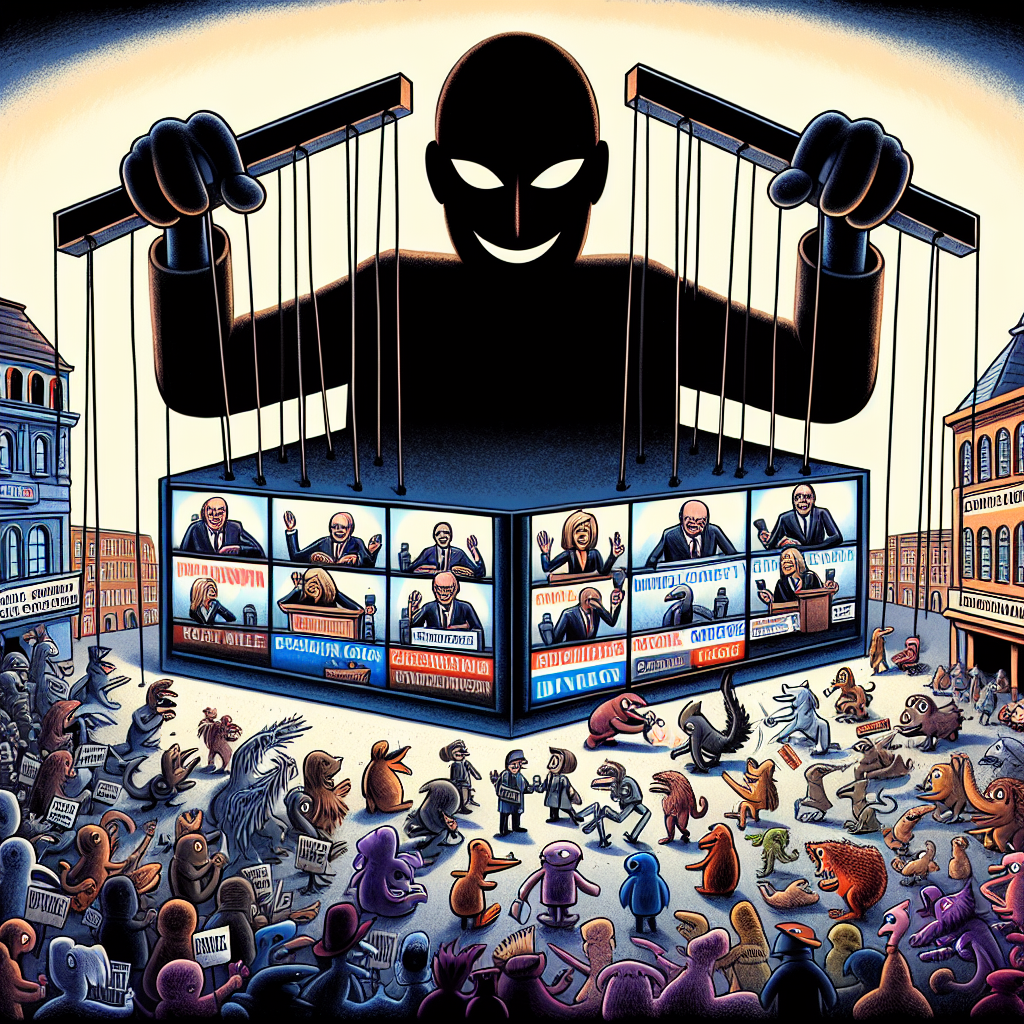Kazakh President’s TV and Radio Complex to release documentary on fake news development

Ah, the grand theater of deception unfolds yet again—this time, staged by none other than those who claim to be the arbiters of truth. The Kazakh President’s TV and Radio Complex is preparing to unveil a documentary titled “FAKE YOU: Anatomy of Deception,” promising to dissect the epidemic of fake news. But beneath this glossy veneer of exposé lies a rather bleak irony: can the puppeteer who controls the strings ever truly illuminate the shadows they cast?
In an era where misinformation blooms like rot beneath the surface, institutions scrambling to “combat fake news” often tread a thin line between revelation and manipulation. The notion that a state-owned media behemoth could objectively critique the development of false narratives feels like a cruel joke whispered in a dimly lit room. It’s the fox hosting a symposium about the henhouse security—charming, yet fundamentally broken.
Consider the machinery behind this documentary: a government media complex, entwined with authority and wrapped in layers of agenda. The “Center for Documentary Film,” poised to broadcast its findings on Jibek Joly TV Channel, wears the mask of transparency but speaks with an echo chamber’s voice. What truths can survive in a landscape seeded with systemic censorship and political choreography? The question is less about the presence of fake news and more about which version of “truth” is being sanctified.
Fake news, in its multifaceted depravity, thrives not only on falsehoods but on ambiguity and distrust. It is the child of chaos, nurtured by fragmented realities and fractured perspectives. Yet, the remedy—if we dare call this state-led production a remedy—feels like pouring ink into the same abyss. This documentary, no matter how investigative it claims to be, is embedded in a narrative that serves those who wield power. It’s a curated spectacle, an attempt to weaponize skepticism selectively.
Why does this matter beyond Kazakhstan? Because it echoes a universal malaise: the erosion of authentic discourse in a world increasingly held hostage by gatekeepers obsessed with controlling narratives. Campaigns against fake news risk becoming Orwellian exercises in rebranding propaganda as enlightenment. They cultivate a culture where the “official story” is peddled as gospel, and dissent is drowned in a sea of so-called “verified” data.
The dark poetry here is that the very act of acknowledging fake news inside a monolithic, state-controlled media apparatus is a paradox, a dance with shadows where each step distorts reality further. The medium itself is a murky lens, clouded by intentions that lack the purity they profess to seek. In this context, “FAKE YOU: Anatomy of Deception” risks becoming just another layer of the masquerade—a theatrical confession penned by those who choreograph the lies.
For those who dwell in the darkness—those who see beneath the surface, who recognize that light often serves as a spotlight on carefully constructed illusions—the release of this documentary might evoke a deep cynicism. The genuine discourse on misinformation demands a multiplicity of voices, diverse and uncoerced, wrestling with nuance and contradiction. It demands spaces without puppeteers and shadow puppets, places where the messy human truth can breathe freely, even if it is unsettling or incomplete.
Yet, when authoritarian structures co-opt the fight against fake news, the battle transforms into a smokescreen, a strategic mobilization of doubt, selective outrage, and sanctioned storytelling. It’s no longer about enlightenment but control—about shaping collective memory and silencing inconvenient facts under the guise of protecting societal cohesion.
The tragedy, then, is twofold: first, the existence of fake news as a symptom of fragmented realities and fractured trust, and second, the weaponization of its critique by those who may be its architects as well. The documentary stands as a monument to this paradox—the attempt to deconstruct falsehood while ensnared by the very webs it seeks to unravel.
Maybe the only authentic response to such a spectacle is an embrace of the shadows: an acknowledgement that truth is often a murky thing, shaped by power, perception, and pain. In this swirling darkness, one must remain vigilant not to be blinded by false illumination. The flickering lights of state-sponsored exposés might dazzle, but they rarely reveal the whole picture.
So, as we await the release of “FAKE YOU: Anatomy of Deception,” let us peer into the void it casts. Let us question not only the falsehoods they claim to disassemble but also the sincerity of the hand that dismantles them. In a world where lies can be weaponized, truth curated, and narratives spun like silk, the most radical act may be to hold the darkness close, acknowledging its complexity rather than clutching at hollow beacons.
Because sometimes, the only way to glimpse genuine clarity is by surrendering to the night.

